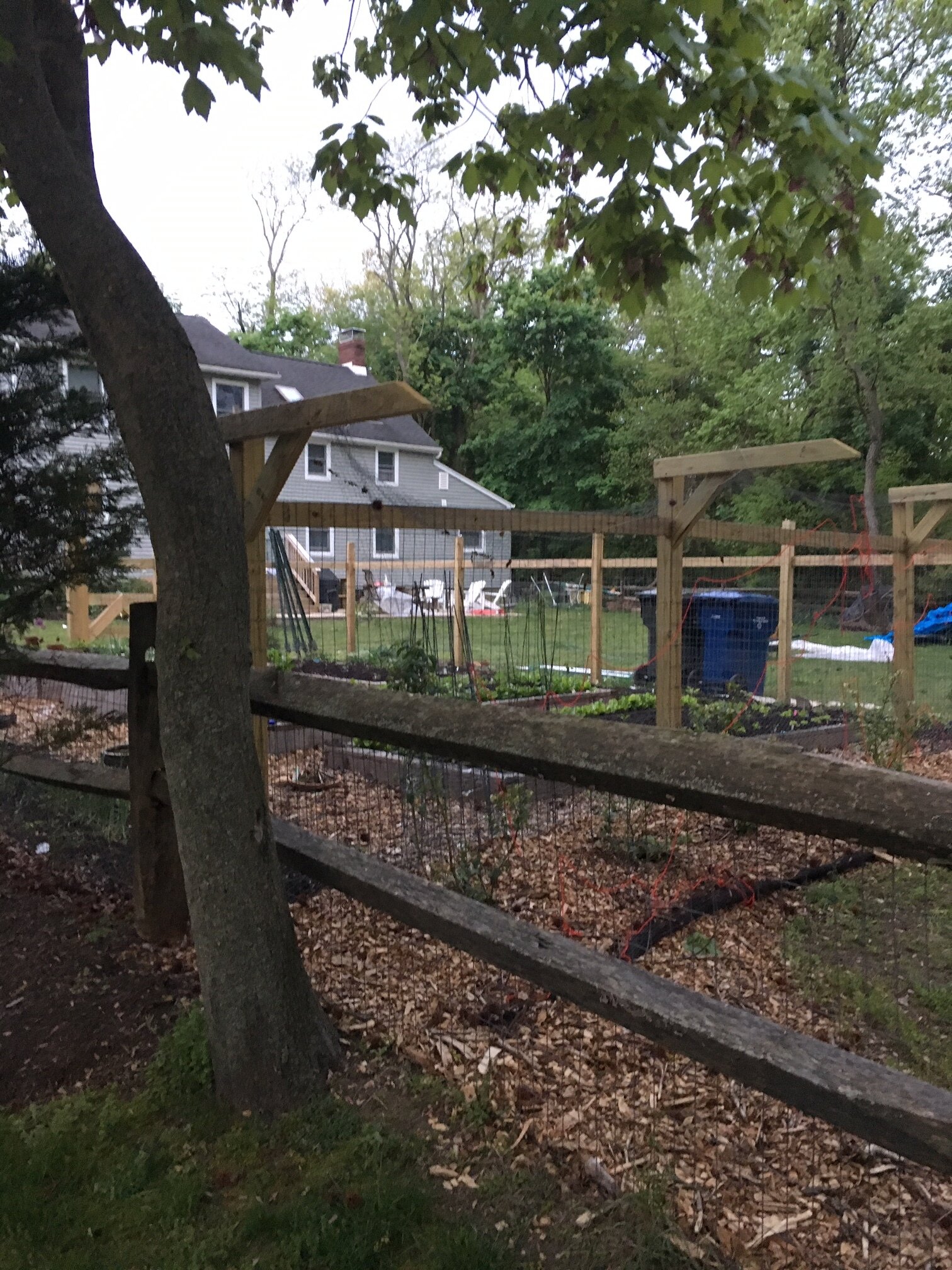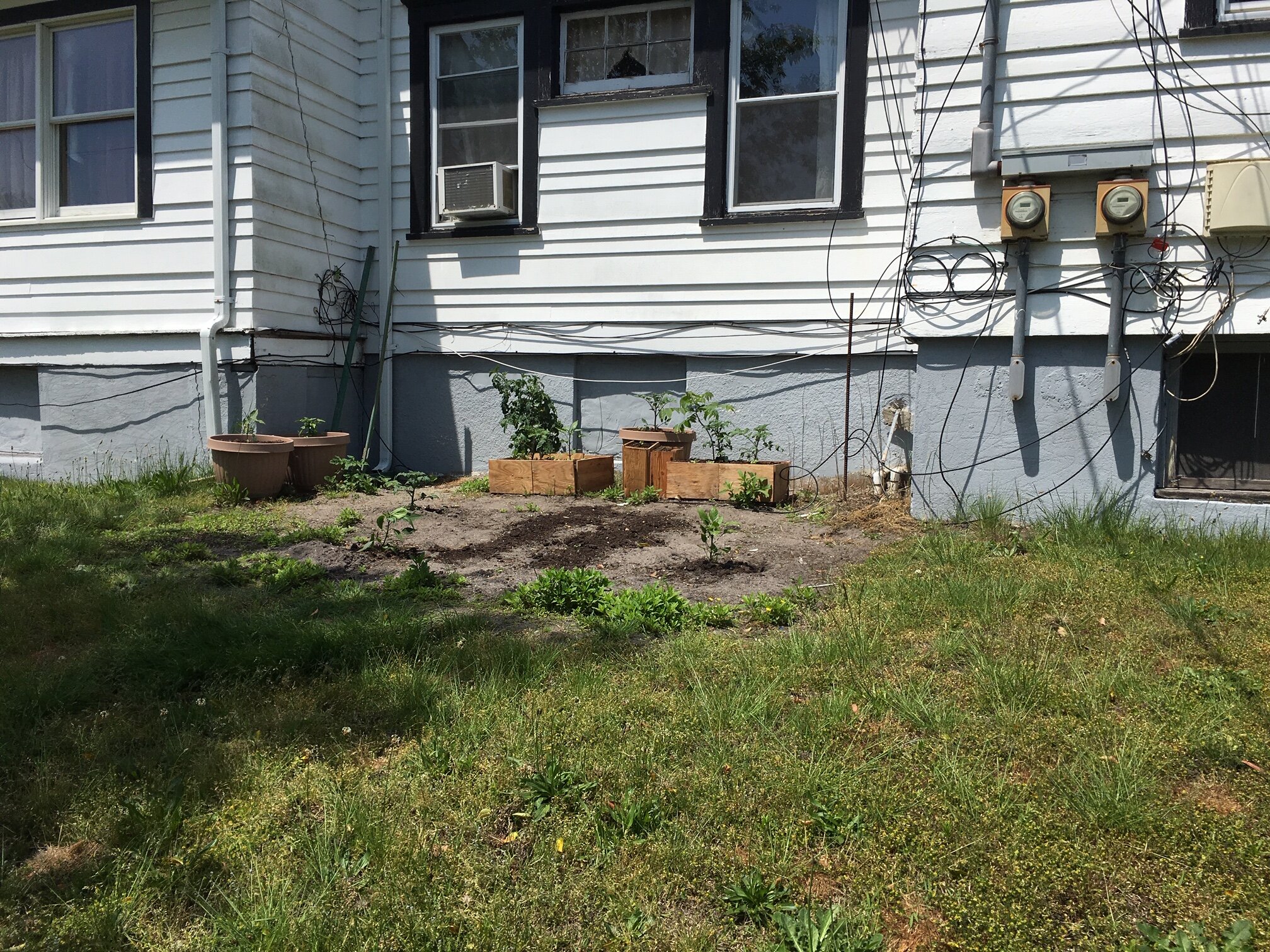Our garden changed so much from the beginning of June to the end but it still seems, judging from other years, that many plants are a little behind in their development. We were able to eat lots of lettuces, peas, radishes, and kale at the beginning of the month, but by then end only some lettuces and kale and blueberries are ready to eat. There are many tomatoes and peppers growing but barely any were ripe by the end of June. We have been catching rain water to water plants with but for the long days of summer coming up the next few months, we might have to switch over to the hose.
The two new beds we put in a few months ago never really took off. The above picture is from the beginning of June, but little has changed. The tomatoes are bigger in the front bed and the zucchini in the back bed has blossoms now. The arugula in that bed went from shirmpy to bolting in a matter of a few hot days.
From the beginning of June to the end, our tomatoes and peppers have filled out and are producing fruit, but it’s not ripe, yet. Our spinach (below) had gone completely to seed and we are hoping to let those seeds develop and replant then in the fall. Same goes for our pea plants.
We harvested a few little cauliflowers from the bed shown above but the heat got to them as well. We will try these again for our fall crop. The radishes went to seed quickly in June and we are letting the seeds dry for replanting in the fall. This year will be a lot about seed saving and storage and experimentation.
Radish seed pod.
In the front yard, we planted soy beans which have grown and started flowering by the end of June. We planted potatoes next to them, which never grew (but I think they were too far gone by the time we planted them). Tomatoes and herbs are doing well in these beds.
Overall, all our tomato plants are smaller then they were last year, but it looks like sometime in July we will harvest a lot of those. Almost all our pepper plants, most of which were from seeds from last year, are small but doing well. In June we bought a few more herbs to fill out our herb bed. And as always, our pride of garden is our orange thyme plant, which has over wintered and grown steadily for three years now. I secretly hope it just takes over the whole front bed one day.
What did your garden look like in June? What changes from last year’s garden have you noticed?


































































